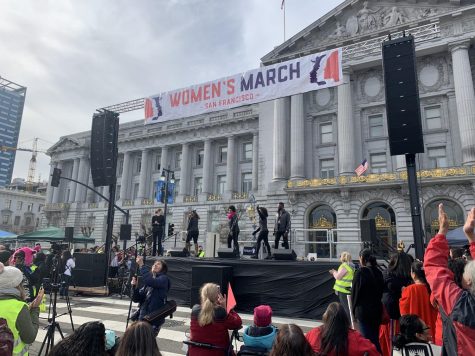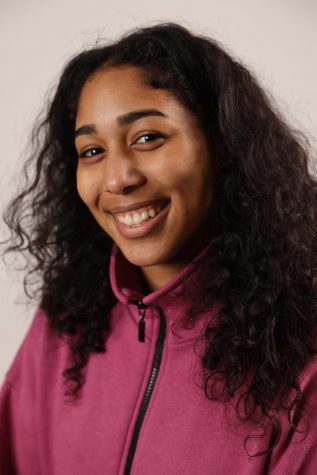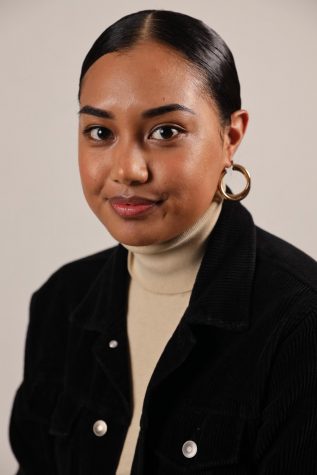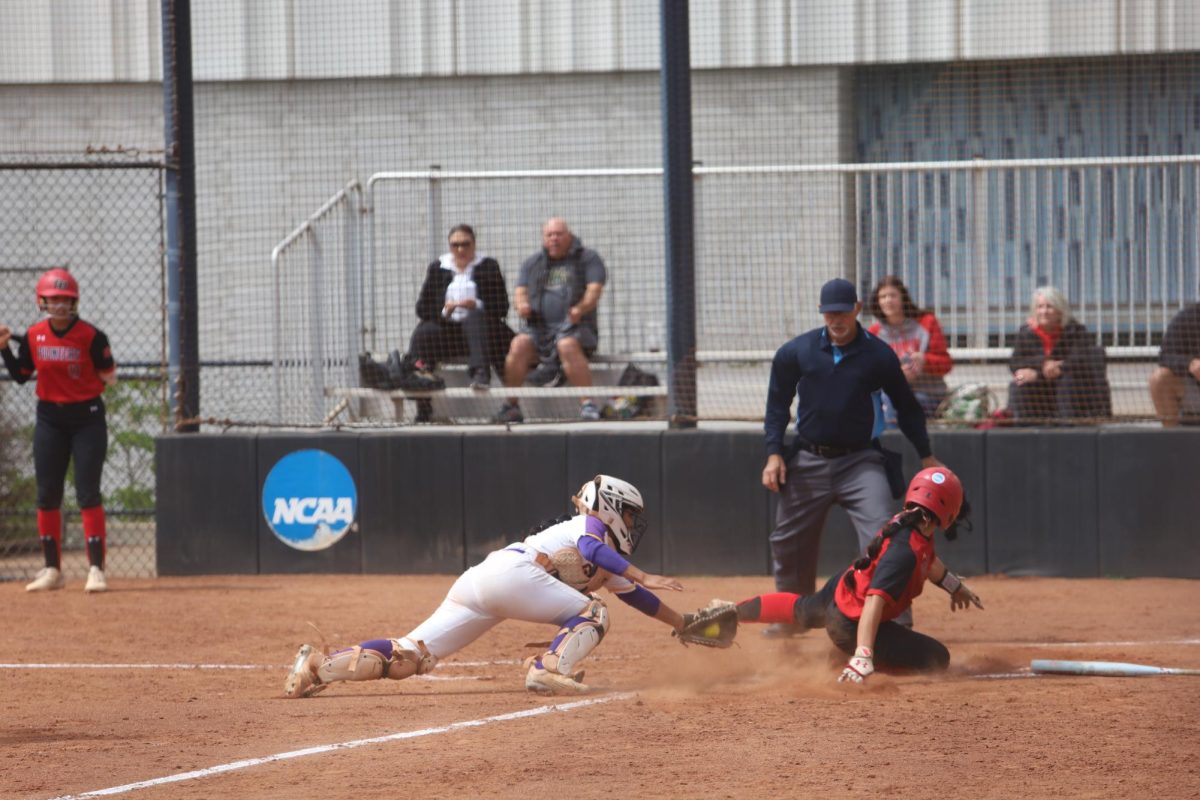Why Women’s March?

People prepare for the march once the rally ends at Civic Center Plaza on Jan. 18. (Photo by Whitney Papalii/Golden Gate Xpress)
Jan 28, 2020
After Donald Trump was elected for president, Teresa Shooks decided to create her own pro-woman Facebook group and encouraged a march against Trump’s administration.
Soon after, veteran activists Bob Bland, Tamika Mallory, Linda Sarsour, and Carmen Perez decided to organize a march on January 21, 2017, in Washington D.C., the day after Trump’s inauguration.
People walked in solidarity with pink pussy hats (the epitome of white feminism) for the human rights that they sensed were being threatened by the new president. Viewing all of this through Instagram gave me the feeling of FOMO (fear of missing out) and the feeling of not doing enough about making sure my voice was heard.
Growing up in a time where social media was such a powerful tool and a necessity, I struggled to focus on what was happening in my reality versus being distracted within a virtual reality. Social media has made me feel as if I was missing out on a lot in life because I wasn’t doing what everyone else was, or what was popular.
The Women’s March was to show women as a unit, but over time the march became something you would go to for a couple of hours to take a photo as proof that you were there to then upload to your Instagram post because of popularity.
“I think they (marches) are important as an energizing activity, so it helps you connect with other people and know you are not alone,” said Crystal Carroll, an attendee of San Francisco’s Women’s March of 2020.
It became popular to protest, but some of the women that were there were the same women that voted for Trump.
Representation is important when having marches meant to empower those that feel they are being threatened by Trump’s administration.
First, there was a Women’s March planned in Humboldt County that was cancelled in 2018 due to fear of it being overwhelmingly white, according to an article written for NBC by Daniella Silva, then you know you have a problem.
This year the Los Angeles Black Lives Matter Movement was not invited and when they tried to contact the Women’s March in LA they failed to respond to email requests according to Melina Abdullah, a Black Lives Matter organizer.
With Black History Month right around the corner, it isn’t a good decision because if it wasn’t obvious before, they exposed themselves to how pro-white feminists they truly are.
White feminism focuses on issues that only white women face which completely excludes the intersectional lens of what the movement is actually about.
In a place as diverse as Los Angeles, you have to have inclusion and that involve, but isn’t limited to only immigrants, LGBTQ+, and the disabled.
Therefore, have inclusion or don’t have a march at all.










